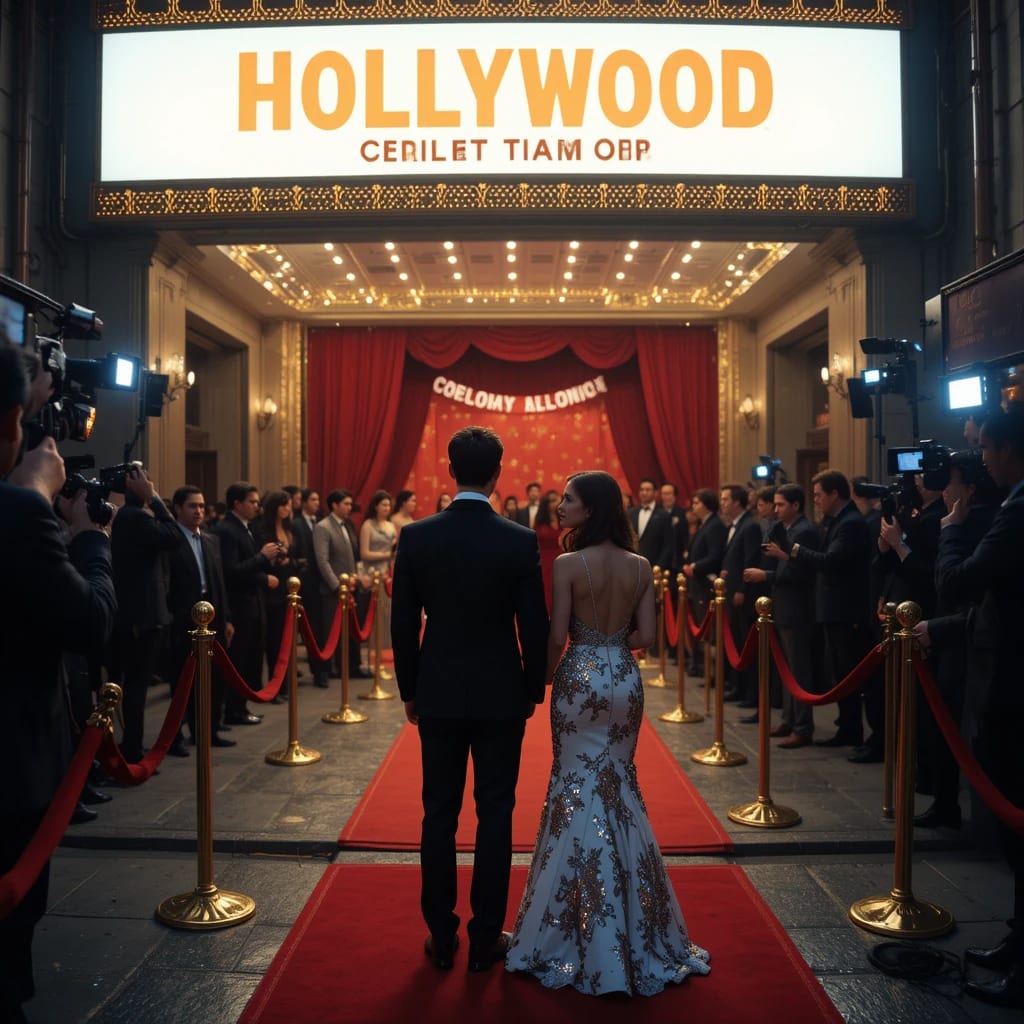In the sprawling sun-soaked expanse of Los Angeles, where dreams rise and fall on a daily basis, visibility is currency and relevance is fleeting. It’s a place where red carpets aren’t just walkways—they’re battlegrounds. In this world, celebrity status must be continually earned, not assumed. And in this fiercely competitive environment, even a Duke and Duchess can find themselves out of place.
Prince Harry and Meghan Markle arrived in Hollywood amid enormous fanfare. Theirs was a story ripe with intrigue: the royal rebels who left the crown behind to pursue freedom, purpose, and—yes—lucrative entertainment deals. For a moment, they were at the center of everything: global headlines, talk show circuits, podcast platforms, and streaming services. The world watched as they attempted to reinvent themselves from disillusioned royals to cultural powerhouses.
But in Hollywood, mystique alone doesn’t pay the bills. And royalty, while glamorous, isn’t a substitute for professional credentials.
The couple’s ambition was clear. They envisioned themselves as producers, storytellers, and changemakers. Their early content deals with Netflix and Spotify suggested they had a seat at the table. But with time, the glossy promises turned murky. Delays, underwhelming content, and accusations of creative control without creative results began to surface.
And then came the Emmy Awards.
In an industry where award show invites are both a recognition of relevance and a nod to influence, the Sussexes’ absence from the guest list was deafening. It wasn’t about exclusion—it was about evaluation. They weren’t snubbed. They simply weren’t considered vital.
Insiders didn’t see it as personal. Rather, it was a cold but calculated judgment of their current entertainment value. Had they delivered a groundbreaking documentary? A compelling series? A must-watch special? The answer was no. Without standout work to point to, there was no compelling reason to include them in a celebration of television’s best and brightest.
Hollywood, after all, may love a good origin story, but it values follow-through even more. And follow-through requires more than personal narratives or public sympathy. It demands the unglamorous grind of creative work—rewrites, edits, tough notes, failed pitches, and hard-won greenlights. It asks for artistry, risk-taking, and collaboration.
While Harry and Meghan’s personal story has global appeal, their Hollywood ventures thus far have leaned too heavily on their identity and too lightly on execution. Industry professionals, who operate in a world of metrics and impact, noticed.
The streaming projects they released, though well-produced, felt more like extensions of their personal brand than original contributions to the cultural dialogue. Their Spotify deal fizzled. Netflix hasn’t delivered anything approaching “must-watch” status under their name. And their production banner, Archewell, remains largely symbolic.
Worse still, murmurs from within the industry suggest a pattern: high expectations followed by low delivery. Creative teams reportedly grew frustrated with control issues and slow development cycles. Others questioned whether the couple truly understood what it takes to succeed behind the camera.
What may have started as genuine passion projects became entangled with brand preservation and PR strategy. The result? An impression that the Sussexes were more interested in message than medium—more about optics than substance.
Meanwhile, the entertainment world moved on. With every new season, streaming platform, and award show, new voices emerged—young creators with fresh ideas, hard-won scripts, and the kind of hunger that drives innovation. In comparison, the Sussexes began to appear like guests at a party they assumed they were hosting.
Their story also serves as a cautionary tale about fame. In Hollywood, novelty is fleeting. The glare of the spotlight fades fast if not backed by results. And while celebrity can open doors, it doesn’t guarantee staying power. The industry rewards those who contribute something real, not those who merely attract attention.
Now, as the Sussexes recalibrate, the path forward is uncertain. They have the resources, the global reach, and the platform to make an impact—but only if they shift from curated narratives to real creative output. That means letting go of control, working with seasoned professionals, and committing to the craft, not just the cause.
Because in this town, storytelling isn’t about being seen. It’s about being felt.
And if Meghan and Harry hope to be more than a headline, they’ll need to stop relying on who they were—and start building what they can create.
